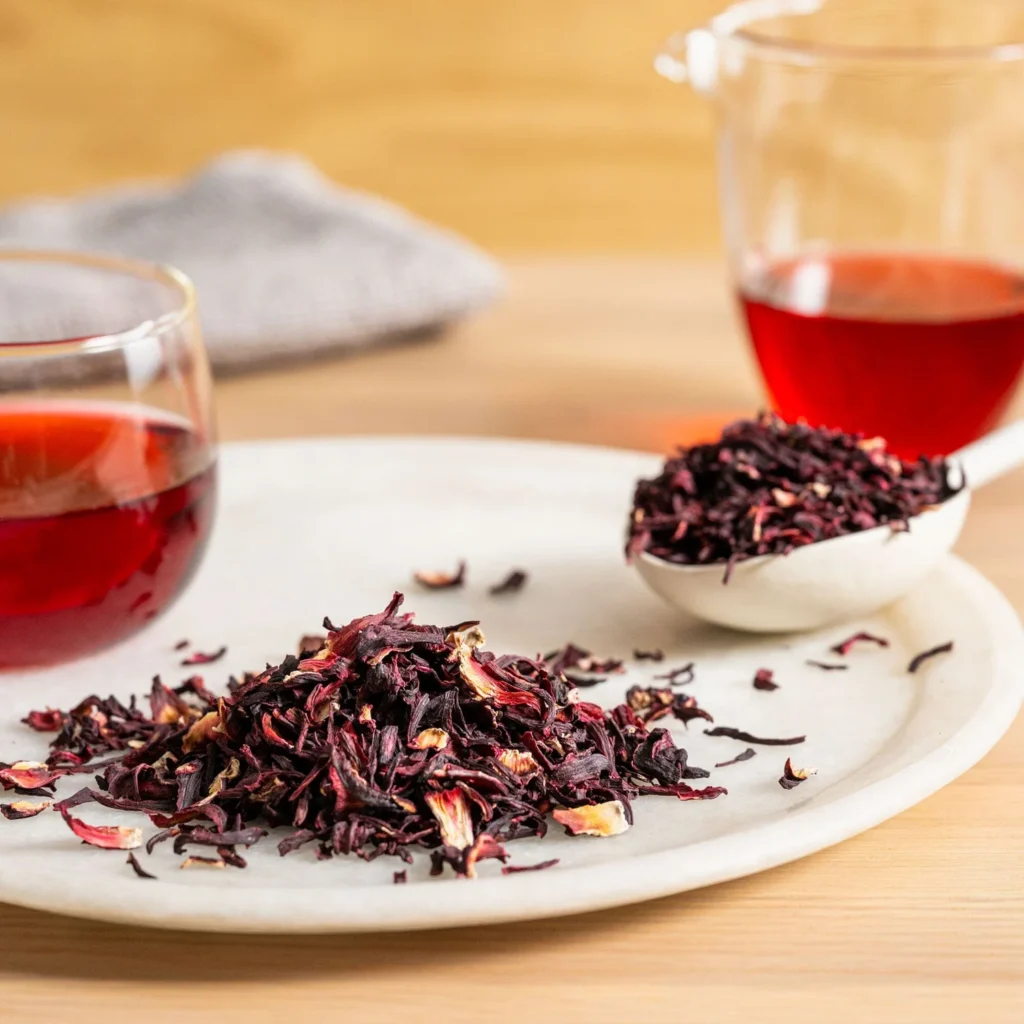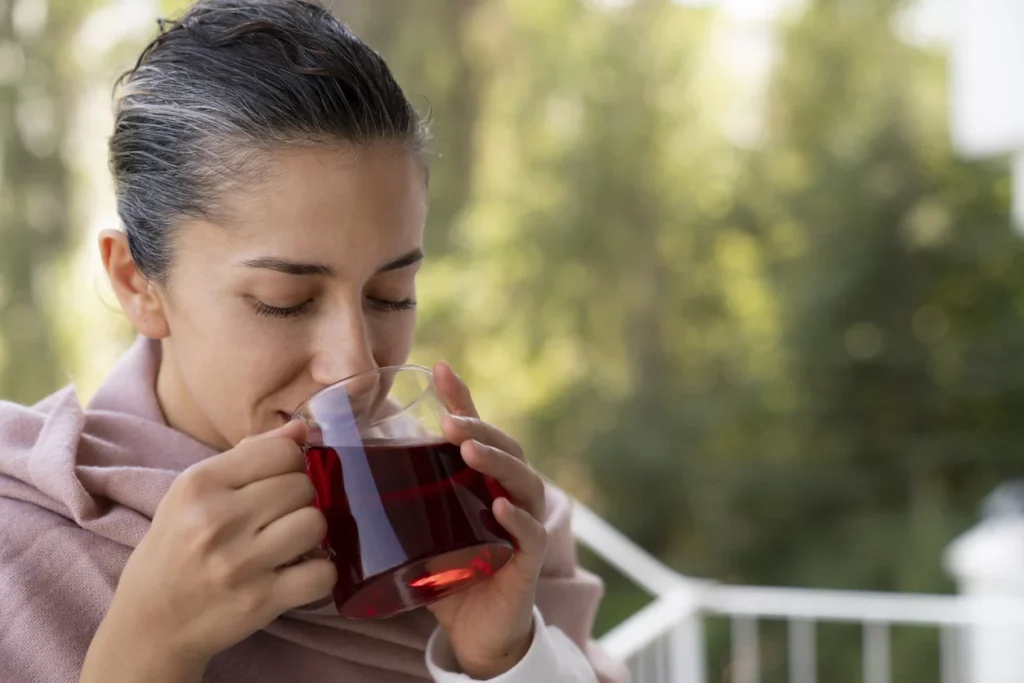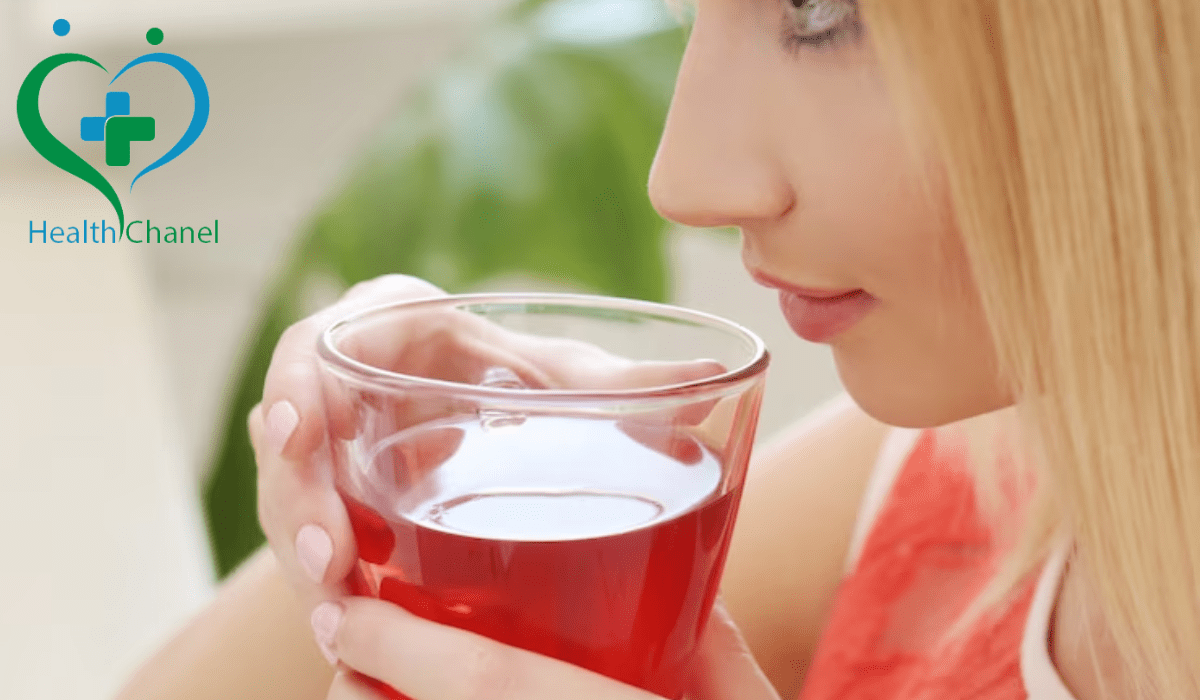Pregnancy is a time filled with questions about what’s safe and beneficial for you and your baby. One common query is, “Is hibiscus tea safe during pregnancy?” While this popular herbal drink is known for its health benefits, it may pose certain risks for expectant mothers. In this guide, we’ll explore the safety, benefits, and potential concerns of hibiscus tea during pregnancy, helping you make informed decisions for your health and well-being.
What is Hibiscus Tea: A Closer Look
Hibiscus tea is a caffeine-free, herbal infusion made from the dried petals of the hibiscus flower. Packed with antioxidants, it’s often enjoyed for its tangy flavour and potential health benefits. However during pregnancy, the question of safety arises due to its impact on hormone levels and uterine activity.

What are the Benefits of Hibiscus Tea in Pregnancy
While hibiscus flower tea isn’t typically recommended for pregnancy, it’s worth understanding health benefits of hibiscus tea in pregnancy:
- Rich in Antioxidants: Hibiscus tea contains powerful antioxidants that help combat free radicals in the body. For pregnant women, this can support overall cellular health.
- Natural Diuretic: Its mild diuretic properties can aid in reducing water retention, which is a common issue during pregnancy.
- Supports Heart Health: Hibiscus tea is known to help maintain healthy blood pressure levels, which can be beneficial for managing mild hypertension in non-pregnant individuals.
- Potential Fertility Benefits: Some women use hibiscus for ovulation due to its traditional use in improving reproductive health, though its role in pregnancy needs caution.
What are the Risks of Drinking Hibiscus For Pregnancy
Although hibiscus has health benefits, but it’s not good for pregnancy:
- Uterine Stimulation: Hibiscus tea for pregnant woman is known to have emmenagogue properties, meaning it may stimulate uterine contractions. This is particularly concerning in early pregnancy and can increase the risk of miscarriage.
- Hormonal Effects: Hibiscus can impact estrogen levels, potentially affecting hormone balance during pregnancy.
- Lowered Blood Pressure: While generally beneficial, hibiscus tea’s ability to lower blood pressure may cause dizziness or fainting in pregnant women.
- Hibiscus Tea is not Safe in Pregnancy Third Trimester: Drinking hibiscus tea at 39 weeks pregnant or in the third trimester is especially risky, as it could trigger preterm labour or complicate delivery.

Is Hibiscus Safe During Pregnancy?
Hibiscus tea is not considered safe during pregnancy due to its potential to stimulate uterine contractions and affect hormone levels, particularly in the first and third trimesters. However, every pregnancy is unique. If you’re considering hibiscus tea, it’s essential to consult your healthcare provider for personalized advice.
Tips for Pregnant Women Considering Hibiscus
If you’re still intrigued by hibiscus tea, here are some tips to approach it cautiously:
- Consult Your Doctor: Always get approval from your healthcare provider before adding hibiscus tea to your diet.
- Limit Consumption: If permitted, keep intake to a minimum to avoid potential risks.
- Try Alternatives: Opt for pregnancy-safe herbal teas, such as ginger or chamomile, which can offer relaxation and other benefits without risks.
- Monitor Your Body: If you notice any unusual symptoms after consuming hibiscus, discontinue immediately and consult a doctor.
Final Thoughts
Hibiscus tea is a flavorful and healthful beverage, but its risks during pregnancy often outweigh its benefits. While it’s known for its antioxidants and heart health support, its potential to stimulate uterine contractions and disrupt hormonal balance makes it unsuitable for most pregnant women.
If you’re searching for ways to stay hydrated or enjoy herbal teas during pregnancy, consider safer options. Remember, every pregnancy is different, and the safety of hibiscus tea for pregnant women depends on individual health circumstances. Always consult your doctor to make the best choice for you and your baby.
Also Read, Can You Drink Liquid IV During Pregnancy? A Complete Safety Guide

